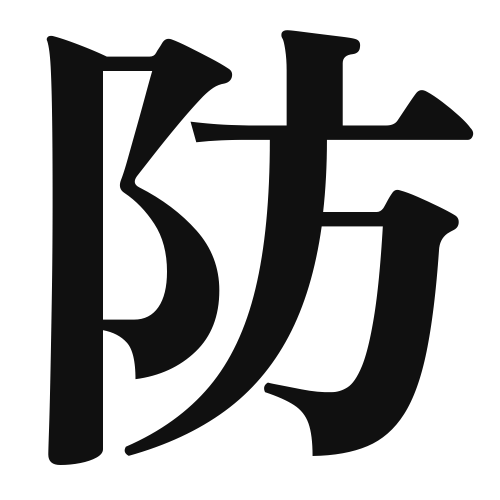1. Overview of Meaning
The kanji “防” (bō) means “to prevent” or “to defend.” It is often used in contexts related to protection, defense, and safeguarding against potential threats or dangers.
2. Formation and Radical
Formation of the Kanji: The kanji “防” is a compound character (会意文字) that combines elements to convey its meaning. It consists of the radical “阝” (which relates to hills or mounds) and the character “方,” which means “direction” or “method.” Together, they suggest a method of protecting or defending a place.
Radical: The radical of “防” is “阝,” which is often associated with geographical features and locations, emphasizing the idea of defense in a specific area.
3. Examples of Usage
Common Words and Phrases: Some frequently used words that include “防” are:
- 防止 (bōshi) – prevention
- 防衛 (bōei) – defense
- 防火 (bōka) – fire prevention
Example Sentences in Daily Conversation:
- 火事を防ぐために、防火対策を講じる必要があります。
- (We need to take fire prevention measures to prevent a fire.)
4. Synonyms and Antonyms
Similar Kanji: A similar kanji is “守” (shu), which means “to protect.” While both kanji relate to protection, “防” emphasizes prevention from threats, whereas “守” focuses on guarding or keeping something safe.
Opposite Kanji: An antonym of “防” is “攻” (kō), which means “to attack.” This highlights the contrast between defense and offense.
5. Cultural and Historical Background
Relation to Japanese Culture: The concept of “防” is deeply rooted in Japanese culture, where protection and defense are significant, especially in historical contexts such as samurai culture and modern disaster preparedness.
Proverbs and Idioms: One common saying is “備えあれば憂いなし” (sonaereba urei nashi), which translates to “If you are prepared, you will have no worries.” This reflects the importance of prevention and readiness in Japanese society.
